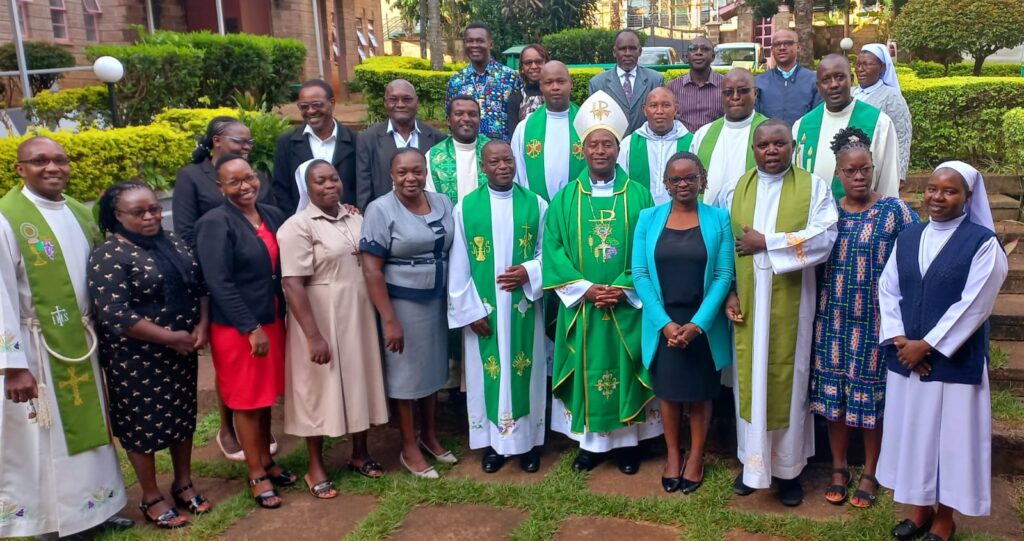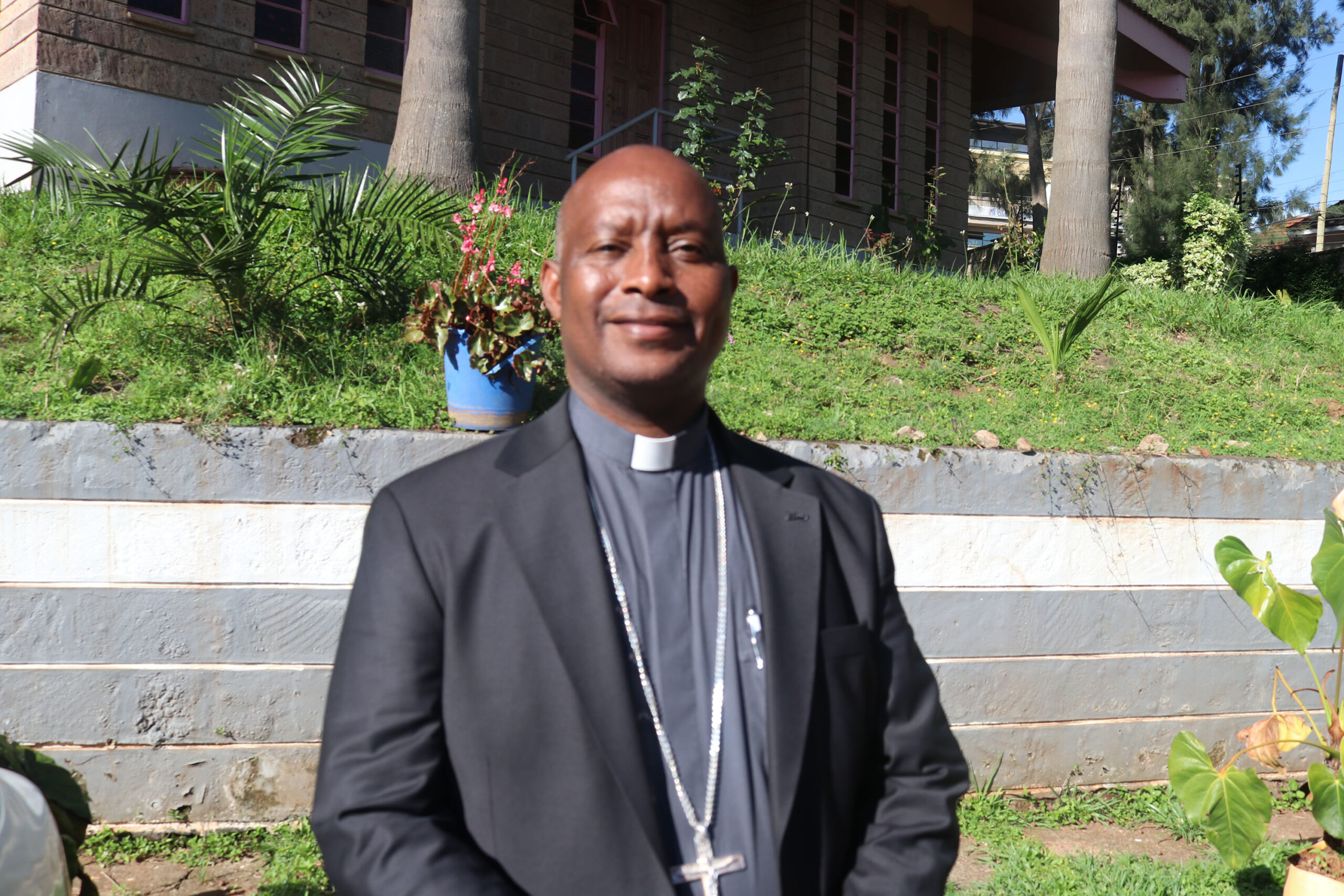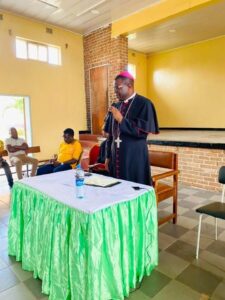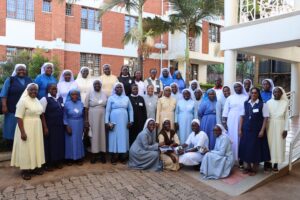KENYA: Family Life Coordinators to Conduct Domestic Violence Survey in Kenya’s Dioceses

Family Life Coordinators
Sr. Jecinter Antoinette Okoth, FSSA
Behind the statistics on domestic violence in society, are the faces of mothers, fathers, sons, daughters, friends, and neighbors living in fear and anguish every single day, a Church official disclosed to family life coordinators in Kenya who are set to conduct a survey on the same in various Dioceses.
In his opening address to nearly 30 participants from various dioceses within the country on Tuesday, May 21, the new chairman for the National Family Life Office at the Kenya Conference of Catholic Bishops (KCCB), Rt. Rev. Wallace Ng’ang’a Gachihi highlighted that the conference “is concerned about the increased cases of domestic violence in families leading to depression, murders, separation and adverse effects on the married couples, children and the whole family system.”
Due to these multiple negative consequences of domestic violence in families the Auxiliary Bishop of Nairobi Archdiocese said, “It has become a scourge that knows no bounds. It doesn’t choose based on age, gender, race, religion, or socio-economic status, yet it permeates every corner of our communities, inflicting pain, suffering, and trauma on individuals, children, and families.”
The two-day meeting at Rosa Mystica Spiritual Centre aimed to create a culture of zero tolerance towards domestic violence, a move that the Bishop said meant to “challenge harmful norms, attitudes, and beliefs that perpetuate the cycle of abuse.”
“We must also aim to address the root causes of domestic violence. These causes may include inequality, negative cultural beliefs and practices, poverty, mental health issues, alcohol, drug, and substance abuse,” Bishop Ng’ang’a underscored pointing out the need for family life coordinators to train children, youth and married couples about healthy relationships and respectful behavior from an early age to help prevent domestic violence from occurring.

“We cannot afford to turn a blind eye or remain silent in the face of such injustice. It is incumbent upon each of us to become agents of change, to raise awareness, and to take meaningful action to combat domestic violence in all its forms,” he said and stressed the need for a concerted effort to enrich and renew the pastoral care for families.
The workshop was convened by the KCCB’s National Family Life Office which liaised with the International Centre for Family Studies, Italy, and the Catholic University of Eastern Africa (CUEA) to develop relevant interventions aimed at the prevention and intervention of violence in families for domestic violence survey in Kenya.
“This study aims to assess the nature, risk factors, and prevalence of domestic violence across the Catholic Dioceses in Kenya to develop evidence-based programs and intervention strategies for strengthening families through structured family education and pastoral care,” the Bishop said and reminded family life coordinators to work towards addressing the barriers that prevent victims from seeking help such as “providing access to psycho-social support services and other resources that empower survivors and families to manage and overcome challenges of domestic violence.”
“As we embark on this journey together, from conducting the research to developing and implementing intervention strategies, let us remember that having loving, peaceful, and happy families is possible, through Christ Jesus,” he added and concluded, “With compassion, collaboration, and prayer, we can create a future where every individual feels safe, respected, and valued in their families.”


